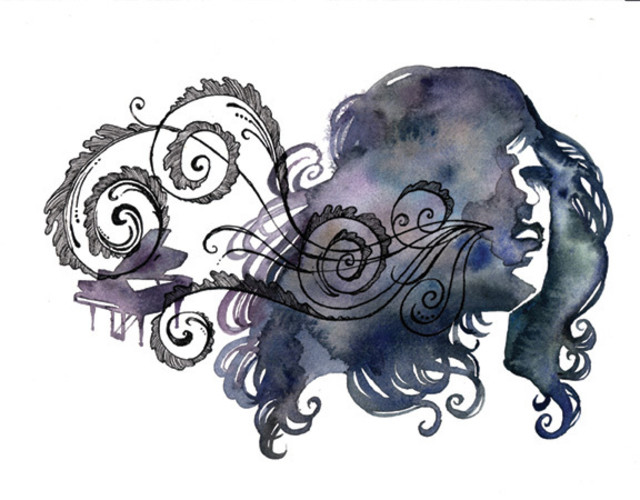Heart Song

Image: Renée Nault
PEOPLE USED TO GO LOOKING for surprises at the Cloud Room, the definitive penthouse bar in a city that has many penthouses but too few bars in them, and the town’s best spot for star-spotting. The Cloud Room topped the Camlin Hotel, the tattered but fearless grande dame that stood kitty-corner from the Paramount Theatre. Or rather, stands, but in sadly altered form; five years ago a time-share resort chain bought the Camlin, kicked out the general public, and converted the Cloud Room into four penthouse suites.
Any time-sharers who stay in those suites may get some glamorous ghostly company. The Cloud Room served as a sort of off-premises green room and after-show club for the Paramount, which made it a magnet for other showbiz types as well. Sinatra and Dino, Dizzy and Miles, Elvis Presley and Elvis Costello, Bonnie Raitt and John Lee Hooker all stopped by, as did innumerable other living legends and lesser lights. Some of them would sidle up to the piano pit where Martin Ross, a classic piano man, played every cornball standard from “Melancholy Baby” to, well, “Piano Man.” A false but telling rumor also had it that Michelle Pfeiffer left scorch marks when she writhed and cooed across that same piano in The Fabulous Baker Boys. The other Elvis (Costello) entertained a private party (his own) there.
I never spied these or any other glitterati hanging out at the Cloud Room. Then again, I never looked for them. I just thought it was a nice place to have a drink. But thunderbolts strike when you least expect them. Early one evening, a few years before its closing, when the bar was still half-empty, Ross began tapping out a tune that was utterly familiar though hardly part of the standard piano-man repertoire. Daa-daa-da-da-da-daa-da-da-daa, it wound through the clinking glasses and cocktail chatter, at once stately, languid, and melancholy: J. S. Bach’s Air on the G String, better known to most of us as the opening bars of Procol Harum’s “A Whiter Shade of Pale.”
And then the voice began: “We skipped the light fandango, turned cartwheels ’cross the room….” The glasses and the chatter fell silent. The voice was whispery, raspy, keening, so full of pain and longing it threatened to explode and take the room with it. With all respect to Gary Brooker’s fine original rendition, this voice owned that song for the moment. And for that moment Keith Reid’s cryptic lyrics—“One of 16 vestal virgins who were leaving for the coast, and although my eyes were open they might have just as well’ve been closed”—seemed to make perfect sense.
It sounded like Janis Joplin channeling Billie Holiday, channeled by…whom? Someone who was here to sing, not to be seen. A shapeless white-shirted form—a white shade—topped by a black mop hunched beside Ross, back to the room, so low she nearly melted under the piano. She finished the song but did not turn. The whole room sat hushed, save for a few gasps. “Ladies and gentlemen, Miss Ann Wilson,” Ross said quietly.
I was never a big Heart fan, but you didn’t need to buy their records to get sated on “Barracuda,” “Crazy on You,” “The Dog and Butterfly”; for a few years in the late ’70s, just before I moved to Seattle, you couldn’t escape them if you tried. I had to grudgingly admire the Wilson sisters’ baroque mix of refinement and raw intensity, their daring to beat the big-hair boy bands at their own game. Yeah, Nancy swung a mean ax, and Ann had a heckuva voice. But that voice never got to me, until that evening.
So thank you, Cloud Room, for lasting as long as you did. And thank you, Miss Ann Wilson, for lasting still, and sneaking up to shake our unsuspecting hearts.




